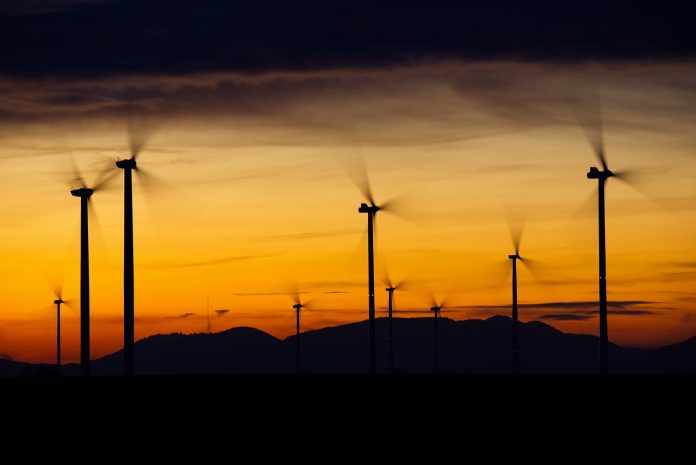CBS News Texas posted an article to their website describing how wind turbines struggle to produce enough electricity during heat waves, due to the natural effect of lower wind speeds during these events. This is true, and it highlights one of the biggest problems renewable sources face when they are supposed to make up a greater and greater share of electricity production. That is, they are highly weather dependent and often fail under unideal conditions.
The article, “Low wind could hamper wind turbine production in Texas,” explains that the coming hot summer days in Texas will likely be a problem for electricity generation, as “energy experts say the state’s wind turbines may not produce as much power because of low wind forecasts. “
Heat domes and heat waves in general are known for causing a drop in wind speeds, and the same thing happened last year in Texas under similar weather conditions, during which wind turbines dropped to operating at just 8 percent of capacity.
The expert CBS interviewed for the post, Dr. Todd Griffith of the Wind Energy Center at UT Dallas admitted that when the wind doesn’t blow, “we need to compensate for that with these other sources…namely, natural gas and coal sources and nuclear.”
This is true, and it doesn’t seem to make much sense to intentionally add unreliable electricity generation to the grid which threaten consumers with power shortages in the first place.
In the case of Texas, these failures tend happen during the highest electricity demand time of year, summer, when air conditioning is needed most.
Indeed, the Electric Reliability Council of Texas (ERCOT) issued a weather watch because of anticipated heat, and while they said that grid conditions are expected to be “normal” they did caution that demand is expected to rise and Texans may want to voluntarily reduce electricity use, “if safe to do so.”
Solar power also suffers under high temperatures. Temperatures over 25°C begin to cause a problem for solar panels, as photovoltaic cells that are overheated experience a voltage drop, which leads to a decline in power output, as detailed in Energy at a Glance: Solar Power Reliability and Costs. Great Britain has experienced that this year already, and had to ramp up coal burning for electricity in order to make up for the loss of solar generated electricity on their grid amid a relatively modest heat wave.
Climate Realism has often covered the issues surrounding wind and solar in particular, such as in these posts here, here, and here, where it is pointed out that not only do these sources struggle in extreme heat, but cold as well, as demonstrated during the heavy freeze in Texas during February of 2021. They also tend to generate more environmentally hazardous waste than proponents are willing to admit, and even in normal conditions, do not generate as much electricity (or revenue) as advertised.
Because sources like wind are proving themselves to be less reliable than traditional means of electricity generation, grid operators nationwide are beginning to warn consumers and policymakers that moving too quickly to shut down reliable baseload power like coal, nuclear, hydro, and natural gas in favor of wind and solar will result in rolling blackouts and brownouts.
Recently, Federal Energy Regulatory Commission (FERC) Commissioner Mark Christie told the House Committee on Energy and Commerce that he thinks “we’re heading for potentially very dire consequences, potentially catastrophic consequences in the United States in terms of the reliability of our grid, and I think that the basic reason is that we’re facing a shortfall of power supply[.]”
It makes sense, as the U.S. population continues to grow, and as climate alarmist policymakers push for total electrification of homes and even transportation, more power is going to be needed. Instead of merely adding additional capacity in the form of renewables, though, traditional sources are being decommissioned in order to reach “net-zero,” often despite the fact that no renewable is able to make up for the power generation loss.
While CBS may not have directly made the connection between wind turbine failures and mass electrification and decommissioning of reliable power sources, they have left a positive bread crumb in the form of educating readers about the struggles of wind turbines in heat waves, a natural and recurring part of Texas’ climate. Hopefully readers will take the logical trail from there, and realize that there will be serious problems with future expansion of renewables.


















The growth of wind and solar generating capacity is interesting. The decline in fossil generation capacity is even more interesting. At some point in the not too distant future, fossil generation capacity will fall below grid peak demand on the current trajectory. If that happens, the grid becomes reliant on renewable generation, which is not reliable, and blackouts are in our future. This suggests that storage capacity and the rate of growth of storage are more important than the rate of growth of wind and solar. Interestingly, current storage capacity and the rate of growth of storage capacity are trivial and the costs of storage are enormous. The Administration has goals regarding fossil generation capacity closure, but no goals regarding storage capacity.
The energy transition, slow as it is in the US, is not proceeding according to plan, because there is no plan. (HT: Richard Greene)
As far as I’m aware, no population on Earth has ever voted for an “energy transition.” It has been forced on societies by politicians for political reasons. We need elected officials who will stand up and say that unreliables are unreliable, inefficient, expensive, and entirely unnecessary. It’s clear where the current trajectory is heading, we need leaders who will say, “Stop!”